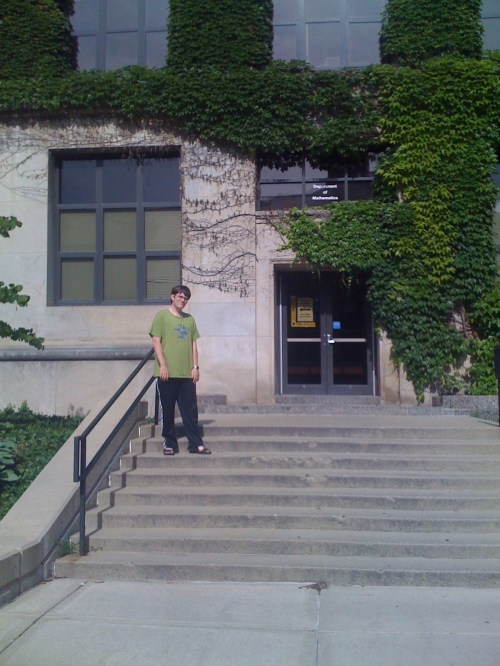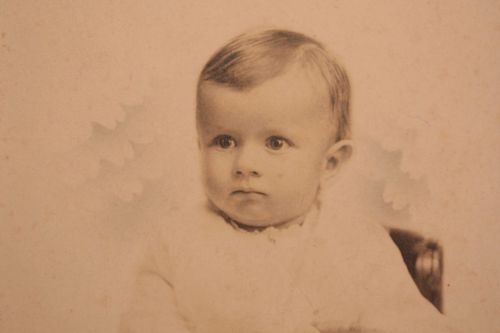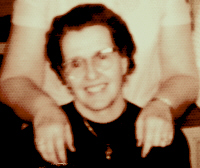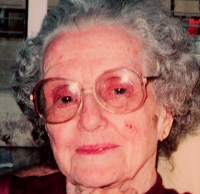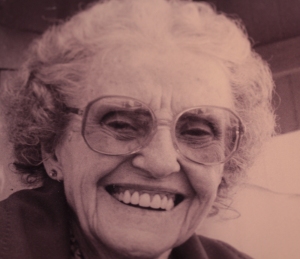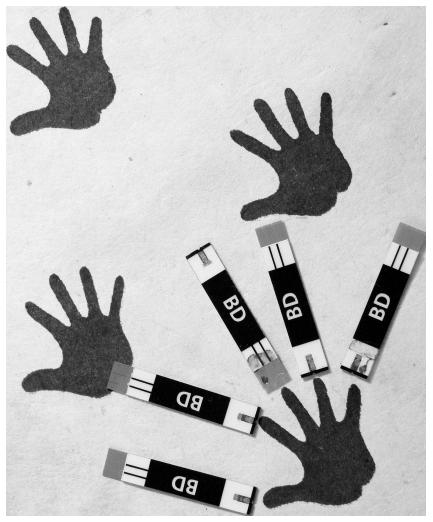By Judith Ford
My grandmother, who was Dutch, did an incredible job of spring cleaning, every March, every year she was alive. No object and no surface was spared a scrubbing. Rugs were taken out and beaten within an inch of their threaded lives; walls were washed with a hard brown scrub brush. Curtains taken down and washed. Every closet emptied, every sheet and towel bleached and washed. Everything dried outdoors on a clothesline. In March, Wisconsin is still cold so things froze out there, pillowcases transformed into wrinkled boards. Socks turned into twisted sculptures. She washed every dish and pot and spoon. Then when it was all done and everything set back in its proper place, she’d cover the sofa and chairs and lampshades in the living room with plastic covers. She’d lay a plastic path from doorway to living room couch and into the dining room. When I was around 11, I asked her, finally, who she was keeping everything so clean for and when would she remove the ugly plastic. (I didn’t say the word, ugly, I’m sure). “The plastic keeps everything ready for company,” she replied. “But, “I protested, “Aren’t I company?” I had never once seen her living room without plastic. “You,” she explained, “are family. Not company.” She didn’t need to add that I, being a rather messy child, was one of the reasons she protected her furniture.
My mother didn’t do spring cleaning. She did like to open up all the windows on the first day the temperature rose over 50–to air everything out. I always loved that, coming home from school for lunch and finding the windows all wide open, the house looking like a toothless, eyeless caricature of itself, the air sweet and chilly. My mother hated being a housewife and did not cotton to cooking or cleaning. She did the minimums and stuck to the 50’s schedule that most of her friends observed: Monday clean and do laundry; Tuesday iron; Wednesday, volunteer work; Thursday, groceries; Friday, light cleaning (a lick and a promise, is what she called it); Saturday was the night my dad cooked burgers and Sundays we went to my grandparent’s house for dinner. My mother did what she felt she must but mostly without joy and often with many sighs. She did seem to enjoy ironing (which I so don’t get) and would sing while she ironed, in a voice like Ella Fitzgerald. Singing over the ironing and walking in the mountains – those are the times I remember my mother at her happiest. Not cleaning. Never spring cleaning.
Well, it’s sort of spring now and I am sort of spring cleaning. I’ve been putting hours in every week to clean my attic. It has to be done. We’re selling the house and moving to the country.
I’ve lived in this house for 28 years, married husband #2 after living alone here with my daughter for 5 years, moved that husband and his daughter in, had another baby, raised these kids until each one grew their feathers and flew off. Also raised a cockatiel, a parrot, four dogs and numerous gerbils and hamsters in this house. Can you imagine the debris? My attic had become a combination museum, closet (huge closet), and file cabinet. Treasures and cast-offs that have trickled down to me from three generations and two family lines. The leftover objects include outgrown clothes, games, books, and life directions. My very first poem, written at age 10. A couple of Jessie’s baby teeth, nestled inside the newborn bracelet she wore in the nursery: “Baby girl, Marks-Szedziewski, 2-19-78.” An envelope containing a curling wisp of very blond baby hair, Nic’s first haircut, 1988, a battered and faded pink pair of tiny toe shoes (mine, from 1955, I think; although they might be my aunt Jeanne’s). A hair curling iron (great-grandmother Nettie’s, late 1800’s). Aunt Jeanne’s bracelets from the 30’s. So glad I didn’t throw those away. Hundreds of notes from Jessie and from Nic: I Love You, Mommy. Mommy don’t tell anyone but I love you best. Thank you for being my mommy, You are the best Mommy, Next time you go on a trip, take me too. Mommy, I hate camp. Come and get me out of here, please!please!please! Nic’s version of Jingle Bells, written at age 4 with a few backwards letters, words scrawled across the page, Jingle Bells Jingle Bells Jingle all the way, Oh What Fun on Al’s True Ride, On the One on Holken Slay. Jessie’s school trophies, soccer and swimming, her camp and sports t-shirts, Nic’s academic medals for top scores in the state on the ACT and SAT at age 9 and 10, his IQ testing done at Northwestern U when he was 5.
The way I wept when the tester called me and told me the test results.
I wish I had known more back then how to feed his ravenous brain, his wonderful mind. So much I wish I could do over for him.
I will be 63 in a month. The past is truly the past. There are no do-overs and no time left for holding on. Time, instead, for letting go. For boxing up, and throwing away, for going to UPS to send Jessie her soccer and swim team t-shirts, to send Nic his Pokemon card collection. Handing the keepsakes over to my grown-up kids, handing over to them the job of remembering.
In the process of this sorting and cleaning, I’ve had to remind myself again and again to let go not only of the objects but the feelings. I’ve laughed, I’ve cried, I’ve longed to have my children back in my arms, on my lap, longed for one more night of reading in bed with Jessie at age 7, one more night of long conversation at bedtime with Nic when he was 10. One more chance to see each of them for one hour during each year of their growing-up – one more chance to drink in the sight of them, their wispy hair, freckled faces, braces and missing teeth, to listen to their piping little voices more intently, memorize each one of them even more completely.
I had expected that cleaning out all this old stuff would help me clear the decks for this next chapter of my life, and yes, I guess that’s happening. I had anticipated reminiscing. I hadn’t anticipated the wave upon wave of memories to be so visceral, so wrenching, so expanding and swooping and full of love. I am not only clearing the decks; I am also rejuvenating both myself and the attic. Am going through some kind of death and resurrection here. Turning myself inside out and right side out again. Right side out and I must admit, a little trembly.
Spring cleaning is a piece of cake compared to this.
About Judith: Judith Ford is a psychotherapist and writer who lives in Milwaukee, Wisconsin. She was red Ravine’s very first guest writer, with the piece 25 Reasons I Write. Judith’s other pieces on red Ravine include lang•widge, Mystery E.R., I Write Because, and PRACTICE – Door – 20min. Spring Cleaning is based on a 15 minute Writing Practice on WRITING TOPIC — SPRING CLEANING.

